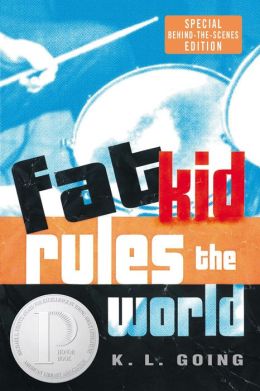Book Review
Rather than give a traditional review I thought I'd do something different this time. Instead I will answer the Topics & Questions for Discussion in the back of the book. (Note: I have paraphrased some of the questions.)
1. Why do you think Chbosky chose to use letters as his narrative structure?
Because this book wasn't traditional in the sense that there is a plot and problem to be solved. It was more about how Charlie's character changes over a school year because of who he meets not what happens to him.
2. Who do you think Charlie was writing to? Does it matter?
I've always believed when we write letters like that we are writing to our future self.
3. Who did you identify with most?
Charlie because I never fit in, always felt like the friends I had eventually left me and I would end up alone, and like Charlie I cried about nearly everything.
4. Discuss Charlie's character. Would you be friends with him?
Yeah, I always gravitated towards people that were "freaks" when I was in high school. What fascinated me the most was Charlie's mental problems. I kept trying to figure out what his diagnosis would be - borderline personality disorder, bipolar disorder, anxiety disorder, schizophrenia, and so on. I didn't expect mental problems to be a subject of the book, so when Charlie started experiencing them and telling about how he had when he was younger as well I was very surprised and got me far more interested.
5. What do you think kept Charlie from "participating" when he entered high school?
Fear of rejection, being laughed at, failure, anxiety.
6. Who was Charlie's greatest ally? Who was his worst influence?
His greatest ally was his English teacher Bill. (I know if it wasn't for my English teacher Mrs. Powers I probably wouldn't be writing today.) His worst influence was grandfather who got drunk and fought with everyone during family holidays.
7. How to the references to other books, movies, and music shape your reading?
I loved this! I am a person who seems to reference everything in my life the same way. I remember what my life was like when I read Bridget Jones's Diary or Prozac Nation and when I saw the movie Titanic, and when I heard the song Smells Like Teen Spirit.
8. When Bill invites Charlie over for lunch Charlie says, "He was talking for real. It was strange." What was meant by "real."
Teachers usually talk to kids like they are students. They keep their personal and professional life separate. As a kid you forget that they are people with lives and problems outside of school. When they talk about their lives and problems outside of school, it is indeed "strange."
9. Sam tells Charlie he can't put everyone else first and call it love. Do you agree with Sam?
Absolutely. Being a martyr and sacrificing yourself to take care of other people so they want or need you around isn't love. It's being a doormat. And when they are gone, you no longer feel wanted or useful because you aren't there to rescue or help them.
10. Discuss Aunt Helen's relationship with Charlie. Where you surprised to find out the truth about their relationship?
Not at all. I figured something really messed up had happened to Charlie to make him as unstable as he was. But it's hard to wrap your mind around it because you usually think of things like that being done by an adult male, not a female.
11. After watching an artsy film with Mary Elizabeth, Charlie says "It was interesting but I don't think it was very good because I didn't feel different when it was over." Do you agree works are only "good" if they make you feel differently? How did reading The Perks of Being a Wallflower make you feel?
Yes I absolutely agree. The books I have given the highest stars to made me feel or think differently than before I started the book. Movies and books can be interesting but what makes them great is when they make you feel strong emotions. The Perks of Being a Wallflower made me feel nostalgic about being a teenager. I'd like to write about some of the things I experienced as a teen and how they shaped who I am.
12. Charlie says, "Maybe it's good to put things into perspective. Sometimes I think the only perspective it to really be there." How has Charlie's outlook shifted since the beginning of the story?
He understands what it means to be "participating." At first he thinks it just means to talk to people and get involved with activities. But by the end of the novel he understands it's more than that. It's being fully present and aware. I think the best scene that shows this is when he's changing the music based on the mood and activities of the partygoers. He learns how to "participate" on an entirely different level. Sometimes the biggest participators are actually behind the scenes, hence the perks of being a wallflower.
13. What reflections did the book inspire in your own life? What parts resonated most deeply with you?
Charlie's relationship with Patrick affected me deeply. I had a friend in high school that everyone thought for sure was gay but he denied it all throughout high school. When I finally got back in touch with him 15 years later I was delighted to learn he was openly gay. Reading about Patrick made me wonder what it was like from my friend's perspective.
My rating

Movie Review
Coming soon!








